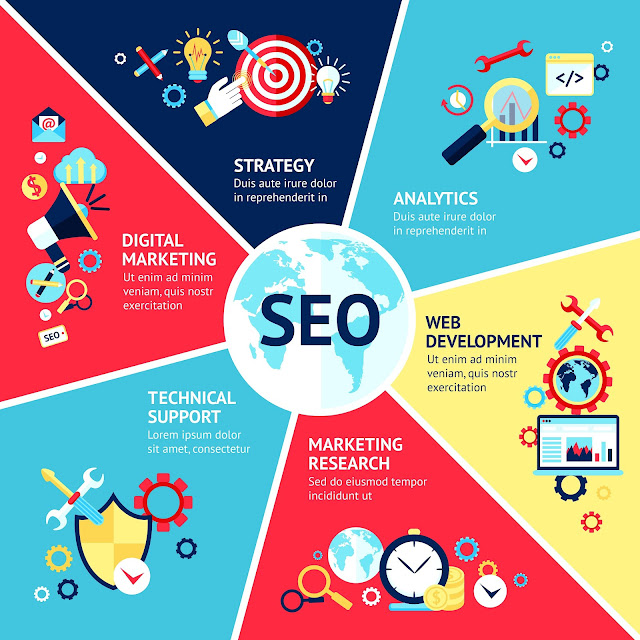What is the connection between Digital Marketing and SEO?
Digital marketing and SEO (Search Engine Optimization) are closely interconnected and often work together to achieve common goals. Here's an overview of their connection:
- Digital Marketing Scope: Digital marketing encompasses various strategies and tactics aimed at promoting products, services, or brands through online channels. It includes a wide range of activities such as search engine marketing, social media marketing, content marketing, email marketing, and more.
- SEO Defined: SEO refers to the practice of optimizing a website's visibility and ranking in search engine results pages (SERPs). The primary objective of SEO is to increase organic (non-paid) traffic to a website by improving its relevance, authority, and user experience, following search engine guidelines.
- Organic Search Traffic: Search engines like Google, Bing, and others serve as major sources of organic traffic for websites. SEO plays a crucial role in enhancing a website's visibility in search results, leading to increased organic traffic. It involves optimizing various aspects like website structure, content, keywords, meta tags, backlinks, and user experience.
- Keywords and Content Optimization: SEO heavily relies on keywords, which are the search terms users enter in search engines. By conducting keyword research and incorporating relevant keywords into website content, meta tags, headings, and other elements, digital marketers can improve a website's visibility and increase the chances of ranking higher in search results.
- Content Marketing and SEO: Content marketing, a vital component of digital marketing, involves creating and distributing valuable, relevant, and engaging content to attract and retain a target audience. SEO helps optimize content by identifying relevant keywords, structuring content for better readability, and ensuring it aligns with search engine algorithms to improve its visibility and discoverability.
- User Experience and SEO: Search engines prioritize websites that provide a positive user experience. Factors like site speed, mobile-friendliness, intuitive navigation, and relevant content all contribute to a website's user experience. SEO efforts often focus on optimizing these elements to enhance user satisfaction, which, in turn, positively impacts a website's search engine rankings.
- Link Building: Another aspect of SEO is building high-quality backlinks, which are links from other websites to your site. Digital marketers employ various strategies like content outreach, guest blogging, and social media promotion to earn relevant backlinks. Effective link-building helps improve a website's authority, credibility, and visibility in search results.
- Performance Tracking: Both digital marketing and SEO rely on tracking and analyzing performance metrics to measure success and make data-driven decisions. Key performance indicators (KPIs) like organic traffic, keyword rankings, conversion rates, bounce rates, and engagement metrics help digital marketers and SEO specialists assess the effectiveness of their strategies and make necessary adjustments.
In summary, SEO is an integral part of digital marketing, as it focuses on optimizing a website's visibility and organic traffic from search engines. By incorporating SEO principles and strategies into broader digital marketing efforts, businesses can enhance their online presence, increase brand visibility, and drive more targeted traffic to their websites.




Comments
Post a Comment